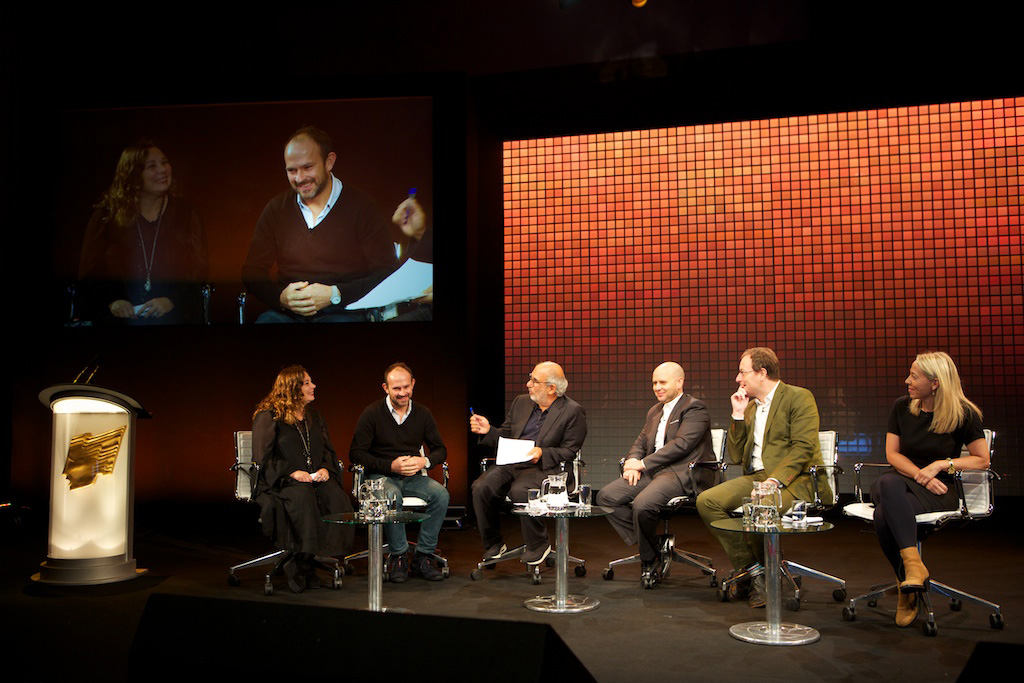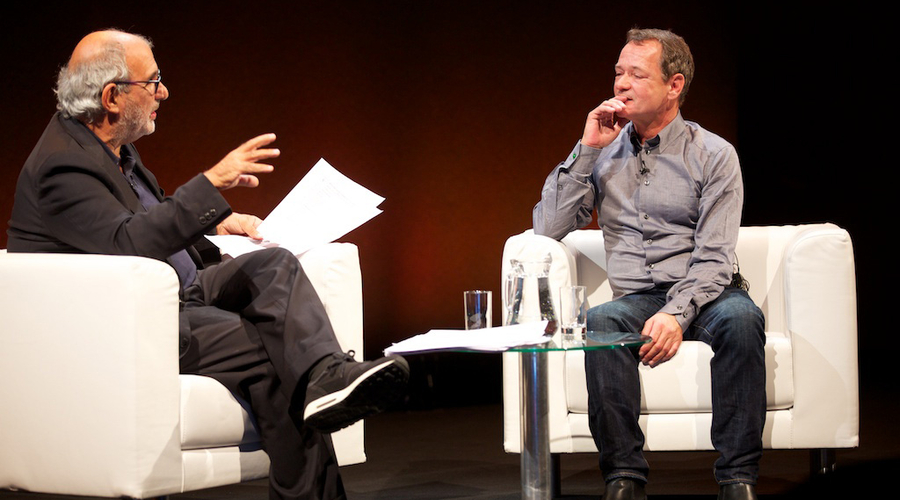 Television writers’ total remuneration in the UK has risen 40% over the past five years. In the same period 45% more drama is being commissioned in the US.
Television writers’ total remuneration in the UK has risen 40% over the past five years. In the same period 45% more drama is being commissioned in the US.
This was the background to a discussion about the changing nature of the television writer’s role – and the power they can exercise.
Multi-award winning writer Paul Abbott, who has relocated to the US and is working on a number of US versions of his successful UK shows, was interviewed by session chair and BBC creative director Alan Yentob.
What had Abbott discovered about where the future lies having moved to the US to remake Shameless?
Abbott replied with his trademark pithy humour: “I went to the US because of a divorce not an ambition to try new formats.”
Ari Greenburg, US talent agent and partner at WME, said: “The era of default viewing is over. There are no barriers to great ideas; they can come from anyone.”
He added: “TV is the best it has ever been. There is more innovative, risk-taking programming.”
Stuart Murphy, director of entertainment, channels at BSkyB, said broadcasters “have to work harder at understanding how creatives tick – it is not really about the finances [offering writers more money]”.
Kudos CEO Jane Featherstone agreed: “Producers need to cut good deals; without alliances with creatives we are nothing.”
Writer Toby Whithouse said: “Financial rewards are much less important than autonomy.” (He said he’d like both, but if he had to make a choice it would be to retain creative freedom.)
Broadchurch writer Chris Chibnall revealed “the most f***ing miserable experience of my life was working [on Camelot] for Starz in the US” due to the lack of creative control.
Sky’s Stuart Murphy made the point that sensible broadcasters are not a creative obstacle, and they can make a show better – just handing writers a pile of money would be a very unfulfilling creative relationship.
But he did acknowledge that channels should not impose a straightjacket on the kind of content they commission: “Channel brands cannot have DNA so potent that it suffocates new ideas or new writers.”
A lot of concern was expressed by the panellists about how to nurture the next generation of writers in the UK, though Murphy disagreed with Ross about the importance of PSBs in addressing this problem. He said: “The world has changed and public service broadcasting is no longer a quasi-social worker.”
The session was produced by Dan Isaacs and Lisa Perrin.
Report by Gordon Jamieson. Photo by Paul Hampartsoumian.

